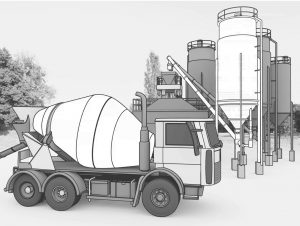A team of researchers at the University of California have achieved a breakthrough that could almost eliminate the output of carbon dioxide generated in the production of cement, according to a new report.
UCLA team devised a way to make cement with 98% less CO2 emissions by decomposing limestone – the raw material used to make cement – “to access calcium oxide, aka lime, without releasing carbon dioxide in the process,” according to a report by New Atlas.
The finding is significant because cement production accounts for 8% of CO2 worldwide. However, the method used to achieve ZeroCAL, as the product has been named (short for ‘zero carbon lime’), still needs refining, because it requires more energy than traditional method and requires considerable water, the report said.
ALSO SEE: Energy Emissions Set to Peak But ‘Not in Time’ For Climate Goals

Instead of heating limestone with a fossil fuel, the team dissolved sedimentary rock feedstock in a water-based solution containing a common industrial acid and separated calcium via membrane nano-filtration. An electrochemical process is then carried out to produce calcium hydroxide, it said.
The UCLA research team is reportedly working with India’s largest cement maker, Ultratech Cement, to build a plant that can produce several metric tons of lime per day with the ZeroCAL process. A paper explaining the process was published last week by the American Chemical Society.
The cement ‘breakthrough’ appears to hold significant potential for carbon emission reduction.
Read the full report: New Atlas.
























